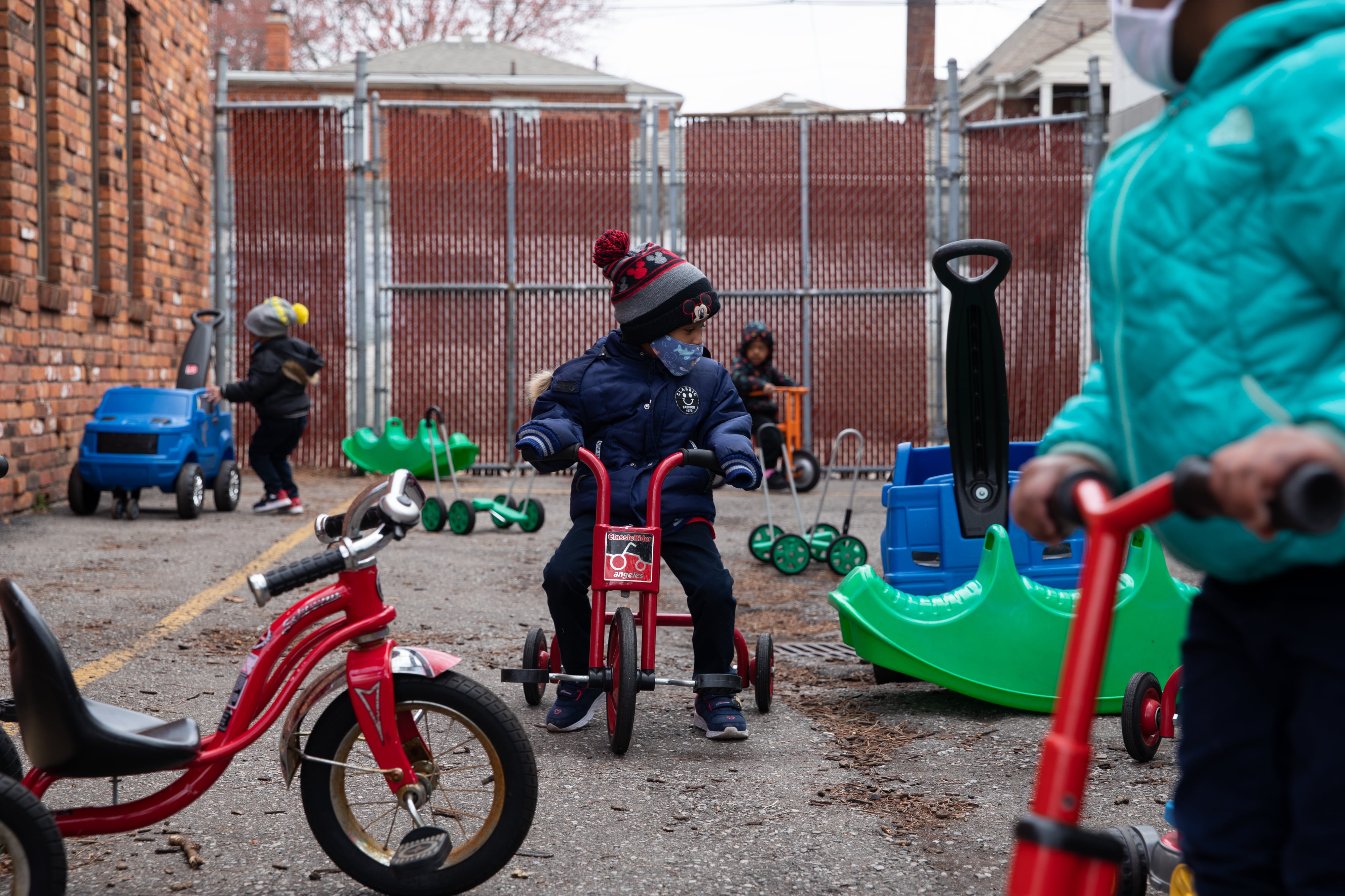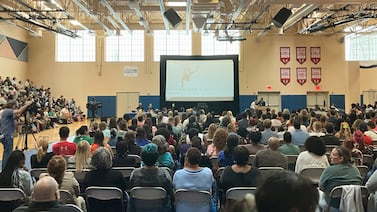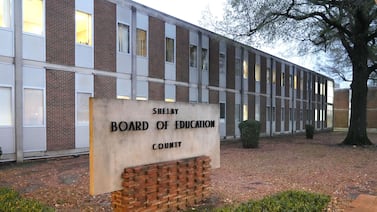Mayor Mike Duggan wants to expand the role of City Hall in Detroit’s early childhood education system.
If state lawmakers approve his plan as part of next year’s budget, city officials would choose Detroit child care providers to receive grants from the Great Start Readiness Program, Michigan’s high-quality preschool program for 4-year-olds from low-income families. GSRP is one of the largest sources of public funding for early childhood education in Michigan.
City officials say they plan to use Detroit’s resources, connections, and manpower to aid a statewide effort to expand GSRP and put more 4-year-olds into high-quality preschool programs.
But skeptics say they worry that the change could create confusion and conflict. GSRP programs in Detroit are currently funded through Wayne RESA, a county education agency. Some providers say they may want to shift over to Detroit if the city begins offering GSRP grants, though the city says it wants to fund only new programs.
“Everyone has to be super careful and transparent,” said Denise Smith, implementation director of Hope Starts Here, a Detroit-based early childhood initiative. “This is fertile ground for competition and confusion.”
Duggan’s latest early childhood proposal comes as Gov. Gretchen Whitmer aims to sharply increase statewide enrollment in GSRP using federal COVID relief dollars.
Wayne RESA increased preschool enrollment in Detroit by 854 children this year, bringing citywide enrollment to 4,345, said Lena Montgomery, executive director of early childhood programs for the agency. She said the agency plans to continue expanding preschool enrollment in the city next year.
A budget bill in the Michigan Senate would make a technical change to GSRP that would allow Detroit to distribute funds under the program. Under current law, only county agencies can administer GSRP funding.
It’s not clear when — or whether — the bill might pass amid a tug-of-war over tax cuts between GOP leaders and Whitmer.
“There’s no reason they couldn’t do this,” said Matt Gillard, president of Michigan’s Children, an early childhood advocacy group and former state lawmaker. “On the other hand, anything that says ‘Detroit’ is often controversial politically.”
Still, city officials appear optimistic. Earlier this month, they published a formal request for proposals from child care providers — even though the bill hasn’t passed yet. They say they are aiming to begin enrolling students this fall.
If the law goes through, city officials promised that their preschool programs would supplement, and not replace, those funded by Wayne RESA.
“The goal here is to add seats to the GSRP landscape to expand access to more children and families, not simply shift them from one GSRP grantee to another,” John Roach, a city spokesman, said in an email. He said the city’s legislative proposal includes a clause guaranteeing that Wayne RESA would not lose seats.
Citywide marketing and recruitment efforts, backed by Duggan and contributions from the Kresge Foundation and the W.K. Kellogg Foundation, could help get more Detroit children enrolled in high-quality preschool, Roach added.
(The Kresge and Kellogg foundations help fund Chalkbeat.)
Duggan has said for years that he wants to bring universal preschool to Detroit. Roach said the new proposal would bring the city closer to that goal.
But even if every Detroit child who is eligible for GSRP were enrolled, the city still wouldn’t have universal pre-K, at least not as it is defined by other major U.S. cities. Philadelphia and Washington, D.C., for instance, offer preschool to 3- and 4-year-olds, with no income eligibility restrictions.
Last week, more than a dozen providers joined a phone call with city officials to learn more about the possibility of receiving GSRP dollars from the city. Some of those already operate GSRP programs via Wayne RESA.
“I like to keep my options open,” said Nina Hodge, owner of Above and Beyond Learning Center, a child care program in Detroit.
She noted that the mayor may waive fees associated with GSRP coaches, who work with teachers to improve their craft. That would make the city program cheaper for providers than Wayne RESA’s.
Some providers say they plan to join GSRP if the city gets involved.
“It changes a lot for me,” said Pageant Atterberry, owner of New Beginnings Child Care, which operates four centers across Detroit with capacity to serve 365 children. She said she already submitted a proposal for GSRP funding from the city, estimating that she could enroll 70 4-year-olds.
While she’s heard from other providers that GSRP dollars come with lots of strings attached, she said she felt she’d have more control if the funds were administered by the city.
“There is a different set of eyes operating on this,” she said. “They’re coming in and asking providers, ‘What do you like or dislike?’”
State officials set strict requirements for GSRP programs that they say are integral to its quality, including a list of approved curriculums and minimum credential requirements for teachers. Even if the city is allowed to distribute GSRP dollars, it could not unilaterally change those requirements.
Koby Levin is a reporter for Chalkbeat Detroit covering K-12 schools and early childhood education. Contact Koby at klevin@chalkbeat.org.







